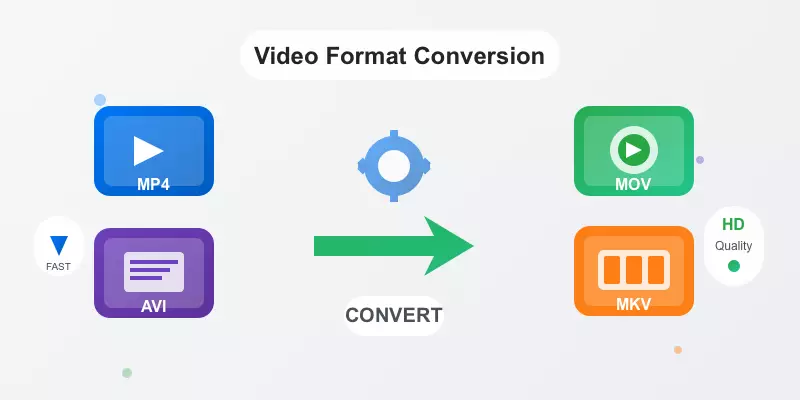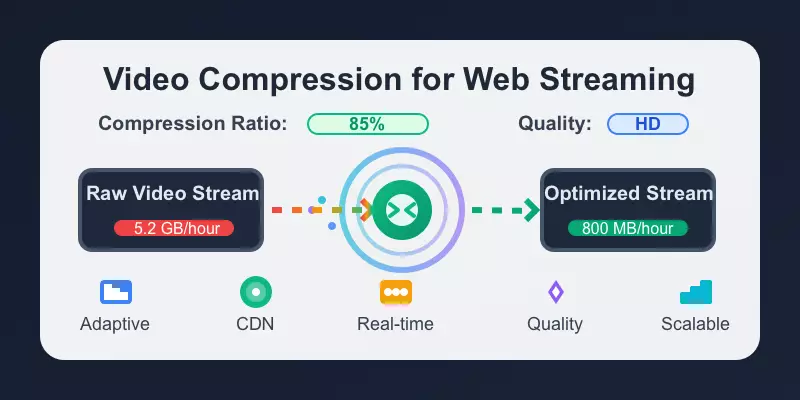WebM Video Format
Articles, guides, and resources about the WebM video format, an open-source container format optimized for the web and HTML5 video with VP8, VP9, and AV1 codec support.
Articles Tagged with "WebM"
How to Convert Videos to Different Formats
Learn how to convert videos between different formats including WebM, MP4, AVI, and MOV. Step-by-step guide with best practices for web-optimized WebM conversion.
Read MoreVideo Compression for Web Streaming
Optimize your videos for web streaming with advanced compression techniques. Learn about WebM's advantages for web delivery and VP9/AV1 codec optimization.
Read MoreUnderstanding Video Codecs: H.264 vs. H.265 vs. AV1
Compare the most popular video codecs including those used in WebM containers. Learn about VP8, VP9, AV1, and how they compare to H.264 and H.265.
Read MoreLearn More About WebM
About WebM Video Format
WebM is an open-source video container format developed by Google specifically for the web. Designed as a royalty-free alternative to proprietary formats, WebM is optimized for HTML5 video and provides excellent compression efficiency through its support for VP8, VP9, and AV1 codecs. As part of the WebM Project, this format represents Google's commitment to open web standards and accessible video technology.
Web-First Design
- HTML5 native: Built for modern web browsers
- Royalty-free: No licensing fees or restrictions
- Open source: Transparent and community-driven
- Efficient streaming: Optimized for web delivery
- Cross-platform: Works across all major browsers
Technical Advantages
- VP9 codec: Superior compression efficiency
- AV1 support: Next-generation codec compatibility
- Vorbis audio: High-quality, open-source audio
- Matroska base: Flexible container architecture
- Adaptive streaming: Perfect for variable bandwidth
WebM vs Other Formats
WebM
Codecs: VP8, VP9, AV1
Audio: Vorbis, Opus
Best for: Web streaming, HTML5
Licensing: Completely free
MP4
Codecs: H.264, H.265
Audio: AAC, MP3
Best for: Universal compatibility
Licensing: Patent encumbered
MKV
Codecs: Any codec
Audio: Multiple tracks
Best for: High-quality archival
Licensing: Open source


